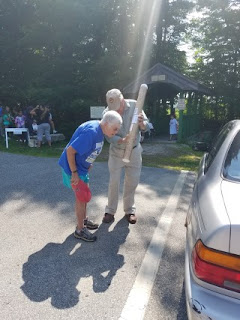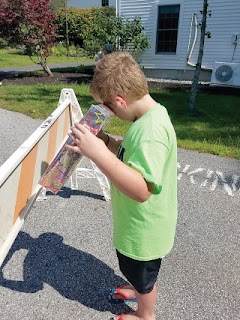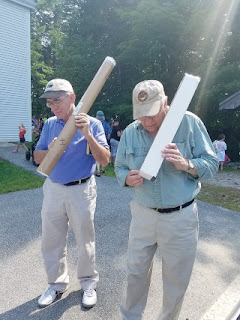William Crawford was the janitor at the U.S. Air Force
Academy from 1970 to 1997. For years cadets barely spoke to him as he quietly
and diligently cleaned their dormitories to an impeccable standard. He was
practically invisible until one day in 1976, when one of the cadets came across
his story while conducting research for a term paper about World War II.
 |
| The Advice Chief |
It turns out William Crawford was a Medal of Honor recipient
who risked his life to single-handedly take out two German machine-gun nests to
save the lives of his squad. He was eventually captured during another military
operation and was held as a prisoner of war until liberated in 1945.
After the cadets realized their janitor was a Medal of Honor
winner, their attitude toward him changed. They tried to get to know him better
and invited him to their formal functions.
They also learned a lot about leadership from his
performance as a janitor and personal character. One such cadet, James Moschgat,
while serving as the 12th Operations Group Commander in 2001, decided to share
the unforgettable leadership lessons he learned from William “Bill” Crawford.
He wrote:
1. Be Cautious of Labels.
Labels you place on people may define your relationship to
them and bound their potential. Sadly, and for a long time, we labeled Bill as
just a janitor, but he was so much more. Therefore, be cautious of a leader who
callously says, “Hey, he’s just
an Airman.” Likewise, don’t tolerate the O-1
who says, “I can’t do that, I’m just a
lieutenant.”
2. Everyone Deserves Respect.
Because we hung the “janitor”
label on Mr. Crawford, we often wrongly treated him with less
respect than others around us. He deserved much more, and not just because he
was a Medal of Honor winner. Bill deserved respect because he was a janitor,
walked among us, and was a part of our team.
 3. Courtesy Makes a Difference.
3. Courtesy Makes a Difference.
Be courteous to all around you, regardless of rank or
position. Military customs, as well as common courtesies, help bond a team.
When our daily words to Mr. Crawford turned from perfunctory hellos to heartfelt greetings, his
demeanor and personality outwardly changed. It made a difference for all of us.
4. Take Time to Know Your People.
Life in the military is hectic, but that’s no excuse for not
knowing the people you work for and with. For years a hero walked among us at
the Academy and we never knew it. Who are the heroes that walk in your midst?
5. Anyone Can Be a Hero.
Mr. Crawford certainly didn’t fit anyone’s standard
definition of a hero. Moreover, he was just a private on the day he won his
Medal. Don’t sell your people short, for any one of them may be the hero who
rises to the occasion when duty calls. On the other hand, it’s easy to turn to
your proven performers when the chips are down, but don’t ignore the rest of
the team. Today’s rookie could and should be tomorrow’s superstar.
6. Leaders Should Be Humble.
Most modern-day heroes and some leaders are anything but
humble, especially if you calibrate your hero
meter on today’s athletic fields. End zone celebrations and
self-aggrandizement are what we’ve come to expect from sports greats. Not Mr.
Crawford--he was too busy working to celebrate his past heroics. Leaders would
be well served to do the same.
7. Life Won’t Always Hand You What You Think You Deserve.
We in the military
work hard and, dang it, we deserve recognition, right? However, sometimes you
just have to persevere, even when accolades don’t come your way. Perhaps you
weren’t nominated for junior officer or airman of the quarter as you thought
you should--don’t let that stop you.
8. Don’t Pursue Glory; Pursue Excellence.
Private Bill Crawford didn’t pursue glory; he did his duty
and then swept floors for a living.
9. No Job is Beneath a Leader.
If Bill Crawford, a Medal of Honor winner, could clean
latrines and smile, is there a job beneath your dignity? Think about it.
10. Pursue Excellence.
No matter what task life hands you, do it well. Dr. Martin
Luther King said, “If life makes
you a street sweeper, be the best
street sweeper you can be.” Mr. Crawford modeled that
philosophy and helped make our dormitory area a home.




















